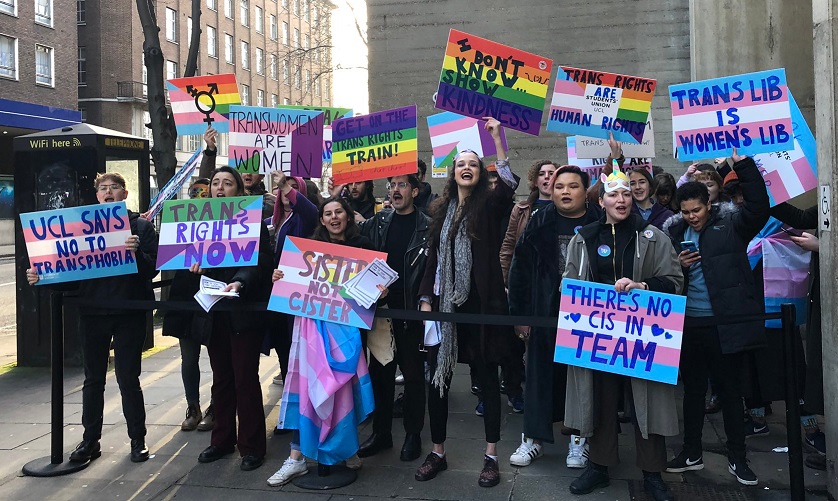Some women say “screw being kind” in the face of a culture that expects them to be unrealistically gracious. I think kindness is a very high virtue and ideally everyone would be kind, but a lot of people have a problematic definition of kindness.
Being kind should never require one to completely ignore one’s own feelings, completely refuse to speak one’s mind, or never dare to express disagreement. Those things aren’t kindness, they’re submission.
If someone who expects kindness from you gives the same kindness back, they would be just as considerate towards your feelings as you are to theirs, would allow you to speak your mind just as they speak their mind, and accept an agreement to disagree when they notice that your mind is set on a position that is incompatible with theirs.
Trans activists speak a lot about kindness. They say that feminists are being very unkind when they oppose this or that aspect of the transgender movement. Oftentimes, they fail at very basic forms of giving back the kindness they expect from others, but there are also issues beyond that.
If one asked a male person identifying as a transwoman, who is convinced by contemporary transgender ideology, why he won’t consider the feelings of women who feel uncomfortable around him in public facilities (like toilets, or changing rooms), it’s likely that he will compare this to a white person feeling uncomfortable with a black person using the same facilities as them. In this case, it’s very important to take a deep breath, remain calm, and make it very clear that their analogy is deeply flawed, to the point of being potentially offensive to black people. It’s important to remind them that whereas black people were forced to use inferior facilities by a social class that dehumanized them, women are merely asking males to use facilities of equal quality, because males have dehumanized them and continue to do so. The desire of white people to force black people to use inferior facilities comes from their supremacist ideology, whereas the desire of women to have male-free spaces is based on the need to have safety from a class of people that frequently sexually assaults them. The way in which a male person identifies is of no relevance at all in this case. The woman’s reaction is not transphobia; it’s a justified androphobia if you will.
If one asked the same male person why a feminist should not be allowed to speak her mind on transwomen being men, when others are allowed to speak their minds on transwomen being women, one is likely to hear a similar analogy: supposedly, it would be like a white person speaking their mind on seeing black people as inferior. Again, it’s very important to face this frustrating claim head-on and make it clear how irrational and wrong it is. To state that a person is a man is not dehumanizing, unless one believes men to be subhuman. The statement “transwomen are men” could be hurtful to someone who feels very strongly about the opposite, but it is absolutely not a dehumanizing statement. It would of course be unkind to repeat a statement continuously in the presence of someone who is offended by it, no matter what that statement is. But if one is having a discussion specifically on the topic of transgender issues, and a person freely expresses their opinion that an anatomically male-born person cannot be a woman, this cannot in good faith be called unkind.
The contemporary transgender movement that holds sway over the liberal mainstream has posited statements of disagreement with them as unkind at best, and severely discriminatory and dehumanizing at worst. It’s important to explicitly call out these arguments, and explain in rational terms how wrong they are.
If you care to be kind, that is. Nobody is forcing you.

1 thought on “On being kind or unkind”